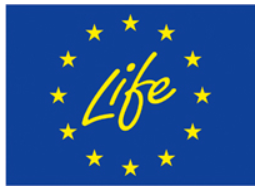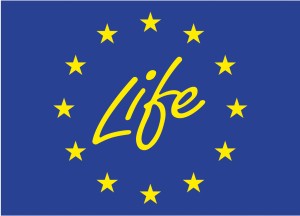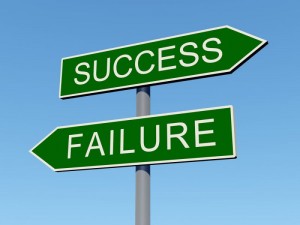 There are 14 main Programmes offering support for collaboration related to Higher Education; all which have calls attached to them. These are:
There are 14 main Programmes offering support for collaboration related to Higher Education; all which have calls attached to them. These are:
Civil Justice: To improve contacts, exchange of information and networking between legal, judicial and administrative authorities and the legal professions. There is some scope to support judicial training.
Competitiveness & Innovation: To enhance competitiveness and innovation capacity in the EU, to advance the knowledge society and to ensure secure, sustainable energy for Europe. 3 Sub-programmes i) Entrepreneurship and Innovation Programme (EIP) ii) ICT Policy Support Programme (ICT-PSP) iii) Intelligent Energy Europe (IEE).
Criminal Justice: To promote judicial cooperation; compatibility in rules applicable in the Member States; improve contacts and exchange of information and best practices and improve mutual trust with a view to ensuring protection of rights of victims and of the accused.
Culture: To enhance the cultural area shared by Europeans, which is based on a common cultural heritage, through the development of cooperation activities among cultural operators, with a view to encouraging the emergence of European citizenship.
DAPHNE:To prevent and combat violence against children, young people and women and to protect victims and groups at risk.
Drug Prevention & Information: To prevent and reduce drug use, dependence and drug related harms; contribute to the improvement of information on the effects of drug use; support the implementation of the EU Drugs Strategy
EU – Canada Transatlantic Partnerships: To promote mutual understanding between the peoples of Canada and the EU including broader knowledge of their languages, cultures and institutions and to improve the quality of human resources in Canada and the EU by facilitating the acquisition of skills required to meet the challenges of the global knowledge-based economy.
Fundamental Rights & Citizenship: To promote the development of a European Society based on respect for fundamental rights; strengthen civil society; to fight against racism, xenophobia, and anti-semitism and to promote legal, judicial and administrative authorities and the legal professions, including support of judicial training.
Health: To improve citizens’ health and security; promote health, including the reduction of health inequalities and generate and disseminate health information and knowledge.
LIFE+: To contribute to the implementation, updating and development of EU environmental policy and legislation by co-financing pilot or demonstration projects with European added value.
Media: Focuses on activities before and after production in the audiovisual sector, offering support for training, project development, distribution and promotion. The Programme will also fund measures aimed at supporting digitisation and the changes it is making to the sector.
Prevention of & Fight Against Crime: As part of the general programme ‘Security and Safeguarding Liberties’ this Programme contributes to a high level of security for citizens by preventing and combating terrorism and crime, organised or otherwise.
Progress: Designed to work alongside ESF it supports the EU’s efforts to deliver growth and more jobs whilst fighting poverty and social exclusion.
Youth in Action: To promote young people’s active citizenship in general and their European citizenship in particular; to develop solidarity and promote tolerance among young people; to foster mutual understanding between young people in different countries; to contribute to developing the quality of support systems for youth activities and the capabilities of civil society organisations in the youth sector and to promote European cooperation in the youth sector.
 The LIFE programme is the EU’s funding instrument for the environment and climate action. The general objective of LIFE is to contribute to the implementation, updating and development of EU environmental and climate policy and legislation by co-financing projects with European added value.
The LIFE programme is the EU’s funding instrument for the environment and climate action. The general objective of LIFE is to contribute to the implementation, updating and development of EU environmental and climate policy and legislation by co-financing projects with European added value.















 SPROUT: From Sustainable Research to Sustainable Research Lives
SPROUT: From Sustainable Research to Sustainable Research Lives BRIAN upgrade and new look
BRIAN upgrade and new look Seeing the fruits of your labour in Bangladesh
Seeing the fruits of your labour in Bangladesh Exploring Embodied Research: Body Map Storytelling Workshop & Research Seminar
Exploring Embodied Research: Body Map Storytelling Workshop & Research Seminar Marking a Milestone: The Swash Channel Wreck Book Launch
Marking a Milestone: The Swash Channel Wreck Book Launch ECR Funding Open Call: Research Culture & Community Grant – Application Deadline Friday 12 December
ECR Funding Open Call: Research Culture & Community Grant – Application Deadline Friday 12 December MSCA Postdoctoral Fellowships 2025 Call
MSCA Postdoctoral Fellowships 2025 Call ERC Advanced Grant 2025 Webinar
ERC Advanced Grant 2025 Webinar Update on UKRO services
Update on UKRO services European research project exploring use of ‘virtual twins’ to better manage metabolic associated fatty liver disease
European research project exploring use of ‘virtual twins’ to better manage metabolic associated fatty liver disease